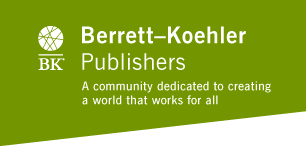- Provides a comprehensive picture of participation as the system of governance we need to meet the workplace challenges of today, and tomorrow
- Describes what executives, managers, workers, labor unions, customers, and suppliers can do as part of a participative enterprise
- Argues that participative governance is a major issue of our times, affecting all areas of our lives: education, business, government, families, and community organizations
o Provides a comprehensive picture of participation as the system of governance we need to meet the workplace challenges of today, and tomorrow
o Describes what executives, managers, workers, labor unions, customers, and suppliers can do as part of a participative enterprise
o Argues that participative governance is a major issue of our times, affecting all areas of our lives: education, business, government, families, and community organizations
Ours is a time of massive change and transition. Political systems everywhere are moving toward democratic forms as people reject authoritarian government, bureaucracy, and the denial of human rights. Many companies, recognizing that business as usual can strangle innovation and competitiveness, have instituted "teams," "total quality programs," and the like, in attempts to foster participation. Unfortunately, both public and private sector success has been elusive and short-term. In order to be successful, these programs must be incorporated into a general movement toward systems of participative governance.
The Age of Participation presents the "big picture" of the governance shift that institutions around the world are grappling with. Its message is relevant for public and private sector institutions everywhere. This book is written for managers, consultants, labor union leaders, and all thinking people who work in large and small organizations. It is comprehensive, yet readable, containing many examples as well as models, thought-provoking concepts, and references to history, philosophy, and science.
In The Age of Participation , McLagan and Nel show why the modern world demands participative organizations. They blend theory and practice in numerous examples and industry models; look closely at every level of life in a participative organization, from suppliers and customers to executives and unions; and deflate the fears and misperceptions that sabotage change. McLagan and Nel propose that the following nine essential facets of an organization must change in order for the governance shift to be effective:
o values,
o structures,
o leadership,
o management,
o information,
o relationships,
o competencies,
o controls, and
o pay systems.
This is a practical experience-based handbook for instituting, sustaining, and nurturing the changes necessary today. Readers are encouraged to take a participative role by completing an organization assessment as they move through the book.
 0 items in cart
0 items in cart









